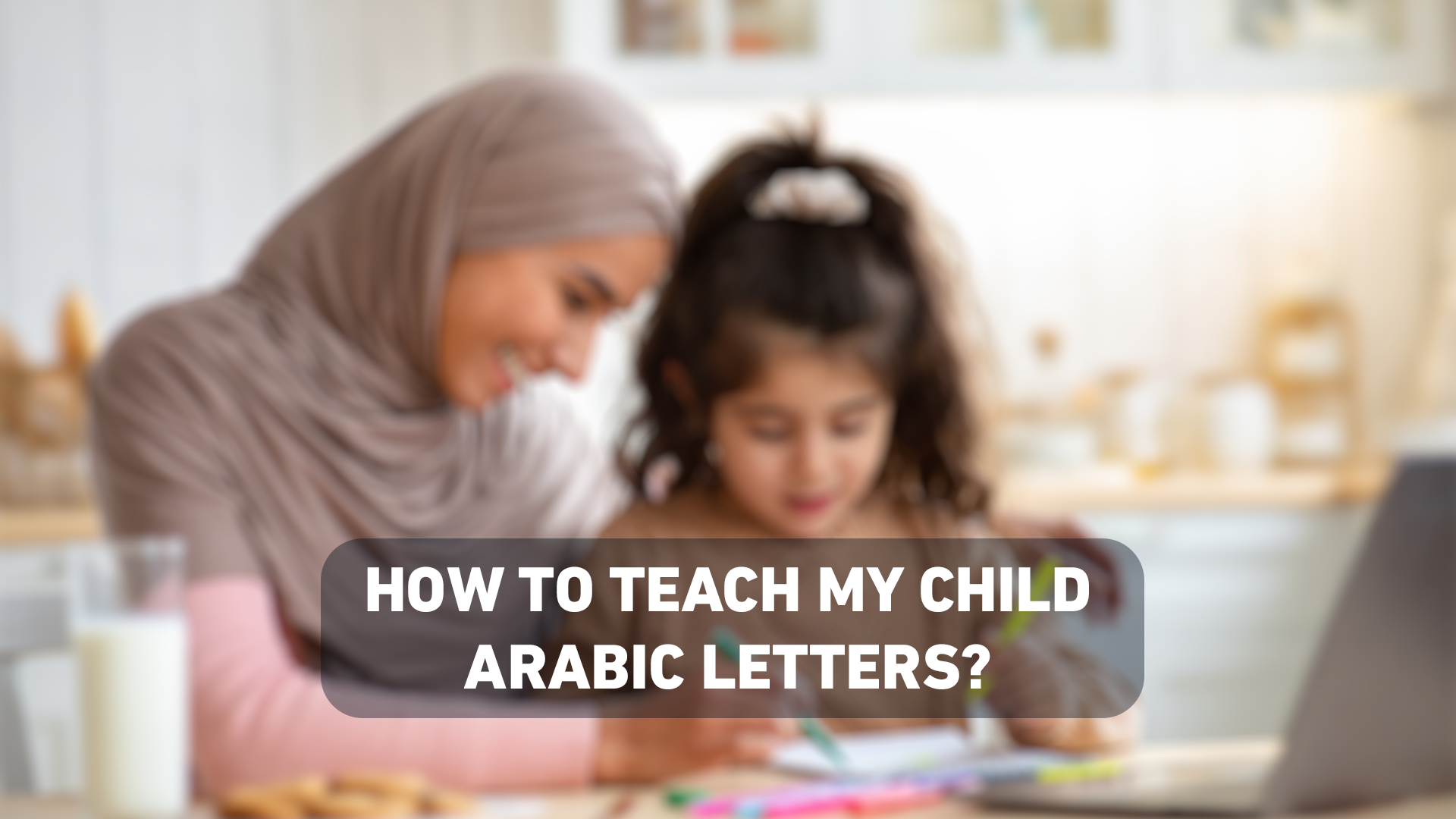
The Arabic language is the primary communication tool by which a child expresses himself. Their proficiency in it leads to success in the future, communicating successfully with his peers, and building up his self-confidence.
Language becomes increasingly important as the medium through which the child will learn the school subjects, writing and reading. For the above-mentioned reasons, teaching Arabic in the early childhood years is an important matter, as the comprehension of the child is more flexible than it is with getting older.
Arabic Language Components
Language consists of letters, words, and sentences. Each letter has a unique sound. All together form a context.
The ideal age to teach letters for children!
Teach letters for children may begin from the age of six months to receive language sounds by hearing only from the family and people surrounding them. Gradually, the children form an auditory memory by which they distinguish their mother tongue and hence start to speak by imitating sounds.
Starting from the age of three, he becomes ready to learn it until the age of five years. It is notable to consider each child’s different abilities, genetic factors, genes, and the environment surrounding them.
Learning Arabic phonetics!
The process of learning the phonetics of letters is divided into two parts:
Listening
Some linguists suggest that proper listening may represent 40% of learning any language. Therefore, you need to encourage your child to listen to the sound pronunciation of the Arabic language by:
- Songs in traditional Arabic, especially those that focus on pronunciation and learning the letters’ sounds.
- Watching films and animations in traditional Arabic. It is preferable to choose popular films with attractive colors and graphics so that the child does not get bored.
- Read Arabic comics to the child so that he listens to the correct structure of the sentences while being entertained.
- As a parent, you should be participating in these activities so that he is motivated while getting the importance of the matter to you. Parents are the best role models for their children.
Reading
- Urging the child to read the letters of the alphabet aloud so that he can hear himself, and be there to correct the mistakes.
- Read on your own to the child, and it is important that he listens to you for the language. Parents are the most important role models, primary partners, and motivators for the child to learn.
- Hiring a professional Arabic language teacher – if necessary – for best results.
- Reading the Holy Qur’an in front of the child also has an important role in the child’s mastery of the language. In Rowad Al-Khaleej Private Schools.
How to memorize and write letters
- Associating each letter with a picture, while showing it to the child so that it is stuck in his memory accompanied by the letter and its sound.
- Writing letters in a large font with attractive colors and hanging them inside the classroom/child’s room.
- Letter stickers and pasting them in the places where the child is around. Repeatedly watching them will make him memorize them.
- The method of direct instruction may work sometimes, but it is recommended to avoid it so that the child does not get bored.
